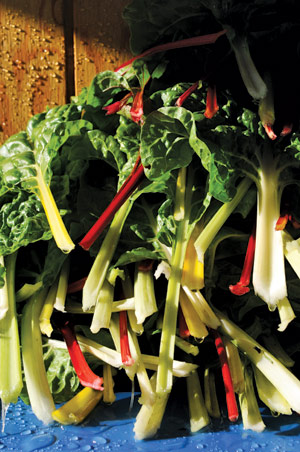With summer break coming to an end for students in the Flathead Valley, that usually means pupils get ready for their world to shift from outside pursuits to hitting the books indoors. But for a group of students at Flathead Valley Community College, being outside and digging in the dirt will be part of learning the business of farming.
The Integrated Agriculture and Food Systems program at FVCC is embarking on its first fall semester, and program director Heather Estrada said the student response has been encouraging.
There were about 10 students registered in each of the three agriculture classes as of last week, Estrada said, which she said is a solid starting point for the program.
“We’re really happy with the number,” Estrada said. “We hope and expect that that will grow, especially when we get the farm up and running.”
The agriculture program will focus on preparing students to be entrepreneurs in the farming sector, whether that means developing and managing a farm or a career in horticultural and agricultural “science, sales, or production.”
Introduced last spring, the agriculture systems program is another addition to FVCC spurred by a need in the local economy. Estrada said part of the program requirements include an internship at an agriculture-based business, and already local businesses are responding with potential positions.
“There’s a lot of opportunity for agriculture entrepreneurship in the Flathead Valley,” Estrada said. “We were hoping to be able to create some agriculture entrepreneurs with the program and have people maybe look at starting their own agriculture business here in the Flathead.”
One of the biggest draws to the program will likely be the five-acre farm located on campus, Estrada said. It’s a new farm, so the fall semester students will work with a little less than an acre to plant and learn about cover crops, which are planted not to be harvested, but to enhance the existing soil.
For example, Estrada said, planting legumes adds nitrogen to the soil, and having cover crops also keeps weeds at bay.
“We really are interested in experimenting with different cover crops,” Estrada said.
 |
|
A stack of newly harvested chard is seen stacked before bundling at a “mini test garden” on Flathead Valley Community College property. – Lido Vizzutti | Flathead Beacon |
When the campus farm is at full production, it will likely include three acres of crops, with the remaining two acres in rotation to give the soil chance to rest and rejuvenate.
The first crops should include a variety of annual fruits and vegetables, Estrada said, geared toward use in the school’s culinary arts program and the Eagle’s Nest Café on campus.
There is also hope for perennial crops, such as asparagus, strawberries and raspberries, and maybe in five to seven years, a harvestable orchard.
Students in the new program don’t need to have a background in agriculture to start – “I wasn’t born into it and I love it,” Estrada said – because the classes start with the basics and eventually move to more complex subjects.
The three fall semester classes this year are Introduction to Sustainable Food and Bioenergy Systems, Plant Science and Animal Science. Later on, students will learn about crop science, integrated pest management, organic crop production, farm equipment, soil nutrient management and more.
Of course, learning about farms is just one side of working on or owning one, Estrada said. Students in the two-year program will also take multiple business and marketing classes, including exposure to accounting decisions.
Students who would prefer pursuing a bachelor’s degree as opposed to the two-year associate’s degree will find that the FVCC classes transfer easily into Montana State University’s Sustainable Food and Bioenergy Systems program, Estrada said.
Overall, the course will bring more people in touch with the land, which Estrada said is a pull many in the younger generation feel despite a culture of technology and big cities.
“Agriculture isn’t one of the vocations or one of the careers people think about traditionally,” she said. “I just think it’s so exciting.”